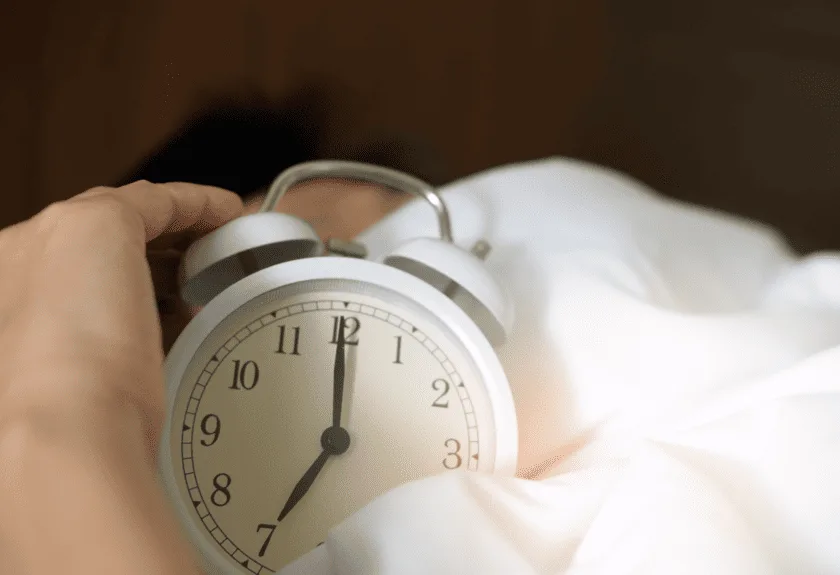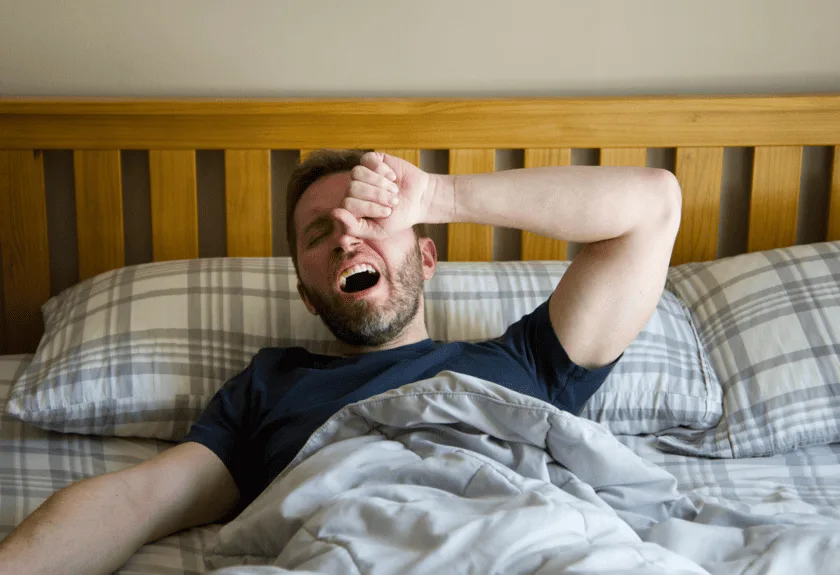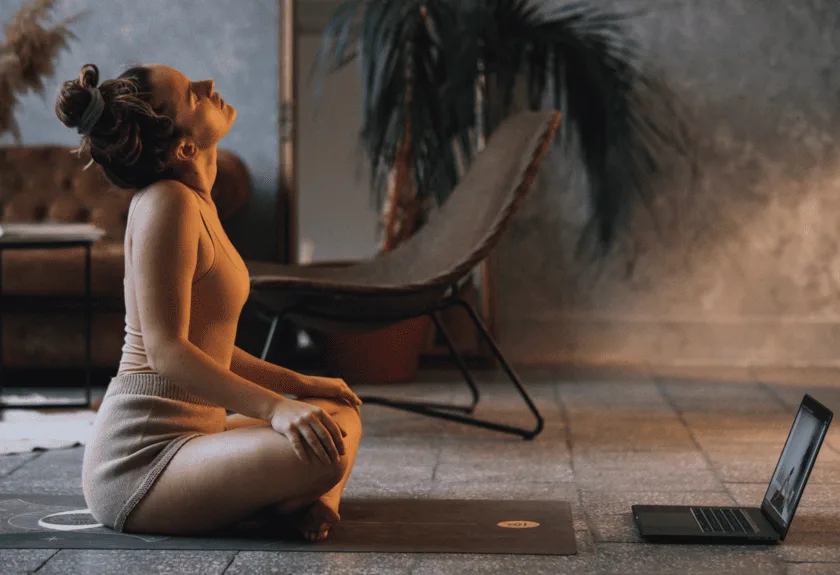Understanding the Paradox of Tiredness and Insomnia
The Science Behind Feeling Tired but Unable to Sleep
It’s a frustrating experience: your body feels heavy, your mind is foggy, and you’re exhausted, yet sleep remains elusive. This paradox of being tired but unable to sleep is more common than you might think, and it’s rooted in the complex interplay between your body’s physiology and your mental state. When you’re tired, your body releases adenosine, a chemical that builds up throughout the day and signals the need for rest. However, factors like stress, anxiety, or an overactive mind can trigger the release of cortisol and adrenaline, hormones that keep you alert and counteract the urge to sleep. This tug-of-war between exhaustion and wakefulness can leave you stuck in a cycle of sleeplessness.
Common Causes of Sleep Deprivation Despite Exhaustion
If you’re lying in bed wondering why you can’t sleep even though you’re tired, you’re not alone. Here are some of the most common culprits:
- Stress and Anxiety: Worries about work, relationships, or life’s uncertainties can keep your mind racing, making it difficult to unwind and fall asleep.
- Poor Sleep Hygiene: Habits like using electronic devices before bed, irregular sleep schedules, or consuming caffeine late in the day can disrupt your body’s natural sleep-wake cycle.
- Overstimulation: Engaging in stimulating activities—whether it’s intense exercise, exciting TV shows, or heated discussions—too close to bedtime can make it harder to relax.
- Unresolved Physical Discomfort: Issues like chronic pain, an uncomfortable mattress, or even a room that’s too hot or cold can make sleep elusive despite fatigue.
- Underlying Health Conditions: Conditions such as sleep apnea, restless leg syndrome, or hormonal imbalances can interfere with your ability to rest, even when you feel tired.
Understanding these factors is the first step toward addressing the root cause of your sleeplessness and finding practical solutions tailored to your needs.
Lifestyle Factors Disrupting Your Sleep
The Impact of Screen Time and Blue Light
In today’s digital age, screens are an unavoidable part of daily life. However, their impact on sleep is often underestimated. Blue light emitted by phones, laptops, and TVs can suppress melatonin production, the hormone responsible for regulating sleep-wake cycles. Even if you feel tired, scrolling through social media or binge-watching a show before bed can trick your brain into staying alert, making it harder to fall asleep.
To mitigate this, try these simple adjustments:
- Use blue light filters or “night mode” on your devices.
- Aim to turn off screens at least one hour before bedtime.
- Opt for calming activities like reading a book or journaling instead.
How Caffeine and Late-Night Eating Affect Sleep
That afternoon coffee or late-night snack might seem harmless, but both caffeine and food can significantly disrupt your sleep. Caffeine has a half-life of about 5 hours, meaning it can linger in your system long after consumption, keeping you awake even when you’re exhausted. Similarly, eating heavy or spicy meals close to bedtime can lead to discomfort, indigestion, and restless nights.
Here’s how to manage these habits:
- Limit caffeine intake to the morning or early afternoon.
- Avoid large meals within 2-3 hours of bedtime.
- If you’re hungry at night, choose light snacks like bananas or whole-grain crackers.
Emotional and Mental Barriers to Sleep
Stress and Anxiety Keeping You Awake
When life feels overwhelming, it’s no surprise that stress and anxiety often follow us to bed. The weight of deadlines, responsibilities, or unresolved conflicts can make it nearly impossible to quiet your mind. Stress triggers the release of cortisol, a hormone that keeps your body on high alert, making relaxation feel out of reach. Anxiety, on the other hand, often manifests as a racing heart, intrusive thoughts, or a sense of dread—none of which are conducive to sleep.
Even if you’re physically tired, your mind may be stuck in a loop, replaying worst-case scenarios or worrying about what tomorrow might bring. This tension creates a vicious cycle: the more you stress about not sleeping, the harder it becomes to actually fall asleep. Recognizing that this is a common struggle—not a personal failing—can be the first step toward finding relief.
How Overthinking and Rumination Prevent Relaxation
Overthinking is like a mental treadmill that keeps running long after you’ve stopped moving. Whether it’s analyzing past conversations, worrying about future decisions, or simply dwelling on the “what ifs,” rumination keeps your brain active when it should be winding down. This mental chatter prevents your body from transitioning into a state of calm, making it difficult to drift off.
Rumination often feels uncontrollable, but understanding its roots can help. For many, it’s a coping mechanism—a way to feel prepared for potential challenges. However, this constant mental rehearsal rarely leads to solutions. Instead, it leaves you feeling drained and restless. Breaking free from this pattern requires gentle strategies, such as redirecting your focus or creating a bedtime ritual that signals to your brain it’s time to rest.
Remember, sleep isn’t just about physical rest; it’s about giving your mind a break, too. By addressing these emotional and mental barriers, you can create a more peaceful path to sleep.
Creating a Sleep-Friendly Environment
Optimizing Your Bedroom for Better Sleep
Your bedroom should be a sanctuary designed to invite rest and relaxation. Start by decluttering—remove anything that doesn’t belong, like work materials or electronics, to create a space that feels calm and intentional. Your mattress and pillows should provide proper support and comfort, as they play a crucial role in how well you sleep. If they’re old or uncomfortable, consider investing in new ones that suit your sleeping style.
Noise can be a sleep disruptor, so aim to minimize it. If you live in a noisy area, try using earplugs or a white noise machine to create a consistent, soothing background sound. Additionally, keeping your bedroom clean and organized can reduce stress and make it easier to unwind at the end of the day.

The Role of Temperature in Sleep Quality
Temperature plays a significant role in how quickly you fall asleep and how deeply you rest. Studies suggest that a cooler room, ideally between 60-65°F (15.6-18.3°C), is optimal for sleep. This is because your body temperature naturally drops as you prepare for rest, and a cooler environment supports this process. If you tend to feel too hot or cold, adjust your bedding or use a fan or heater to find the right balance.
Consider your pajamas and sheets as well. Breathable fabrics like cotton or bamboo can help regulate your body temperature throughout the night. If you struggle with night sweats or feeling too cold, these small changes can make a big difference.
How Lighting Impacts Your Sleep
Light is one of the most powerful cues for your circadian rhythm—the internal clock that regulates sleep and wakefulness. Dim the lights in the evening to signal to your body that it’s time to wind down. Avoid bright screens from phones, tablets, or computers at least an hour before bed, as the blue light they emit can interfere with melatonin production, the hormone responsible for sleep.
If your bedroom isn’t dark enough, consider using blackout curtains or a sleep mask. Even small amounts of light from street lamps or electronics can disrupt your sleep cycle. On the flip side, exposing yourself to natural light in the morning can help reset your circadian rhythm and improve your sleep quality over time.
Creating a Relaxing Atmosphere
Your bedroom’s atmosphere should encourage relaxation and calm. Incorporate elements that appeal to your senses, such as calming scents like lavender or chamomile, which are known for their sleep-promoting properties. A small diffuser or pillow spray can make a difference. Soft, ambient lighting like bedside lamps or fairy lights can also help create a cozy vibe.
Consider playing gentle, soothing music or nature sounds if it helps you unwind. The goal is to make your bedroom a place where your mind and body associate with rest, free from distractions and stressors.
Establishing a Relaxing Bedtime Routine
Techniques to Wind Down Before Bed
Creating a calming evening ritual can help signal to your body that it’s time to transition into rest mode. Here are some practical, simple techniques to incorporate into your nightly routine:
- Limit Screen Time: Step away from smartphones, tablets, and computers at least an hour before bed. The blue light emitted by screens can interfere with melatonin production, making it harder to fall asleep.
- Practice Gentle Stretching or Yoga: Gentle movements can release tension in your body and prepare you for rest. Try light stretches or poses like child’s pose or legs-up-the-wall to relax your muscles.
- Engage in a Calming Activity: Reading a book, journaling, or listening to soothing music can help quiet your mind and reduce stress. Choose activities that bring you joy and don’t overstimulate your brain.
- Use Relaxation Techniques: Deep breathing exercises, meditation, or progressive muscle relaxation can help calm your nervous system and ease you into sleep. Even just a few minutes can make a difference.
- Create a Comfortable Environment: Dim the lights, adjust the room temperature, and consider using calming scents like lavender or chamomile to create a sleep-friendly atmosphere.
The Importance of Consistency in Sleep Schedules
Consistency is key when it comes to improving your sleep quality. Your body thrives on routine, and maintaining a regular sleep schedule helps regulate your internal clock (circadian rhythm). Here’s why it matters and how to make it work:
- Regulates Sleep Patterns: Going to bed and waking up at the same time every day, even on weekends, helps your body predict when it’s time to sleep and when it’s time to wake up. This consistency can make falling asleep easier over time.
- Enhances Sleep Quality: A consistent sleep schedule allows your body to move through the natural sleep cycles more effectively, leading to deeper, more restorative rest.
- Boosts Daytime Energy: When your sleep schedule is steady, you’re less likely to experience grogginess or fatigue during the day, helping you feel more alert and focused.
To establish consistency, start by setting a bedtime and wake-up time that aligns with your lifestyle and allows for 7-9 hours of sleep. Stick to it as closely as possible, and be patient—your body may take a few weeks to adjust to the new routine.
When to Seek Professional Help
Signs It’s Time to Consult a Sleep Specialist
Sometimes, despite your best efforts, sleep issues persist and begin to significantly impact your daily life. While occasional restless nights are normal, chronic sleep problems may indicate an underlying condition that requires professional attention. Here are some signs it’s time to seek help:
- You’ve tried multiple strategies (like improving sleep hygiene, reducing stress, or adjusting your diet) but still can’t sleep well.
- You consistently feel exhausted during the day, even after what seems like a full night’s sleep.
- Your sleep issues are affecting your mood, productivity, or relationships.
- You experience loud snoring, gasping for air, or pauses in breathing during sleep—potential signs of sleep apnea.
- You rely on sleep aids or stimulants like caffeine to function.
If any of these resonate with you, consulting a sleep specialist can provide clarity and a tailored plan to address your specific needs.
Understanding Sleep Disorders: Insomnia and Sleep Apnea
Sleep disorders are more common than many realize and can often go undiagnosed. Two of the most prevalent conditions are insomnia and sleep apnea, each with distinct characteristics and impacts.
Insomnia is characterized by difficulty falling asleep, staying asleep, or waking up too early and not being able to go back to sleep. It can be triggered by stress, anxiety, lifestyle factors, or chronic conditions. While occasional sleepless nights are normal, chronic insomnia—occurring three or more nights a week for at least three months—is a sign to seek professional help.
Sleep apnea, on the other hand, is a condition where breathing repeatedly stops and starts during sleep. Common symptoms include loud snoring, daytime fatigue, and waking up gasping for air. Sleep apnea not only disrupts sleep but can also lead to serious health issues like high blood pressure, heart disease, and diabetes if left untreated.
Recognizing the signs of these disorders is the first step toward finding solutions. A sleep specialist can conduct evaluations, such as sleep studies, to diagnose the issue and recommend treatments ranging from lifestyle changes to medical interventions.
Small Changes for Big Improvements
Quick Tips to Improve Sleep Tonight

If you’re struggling to fall asleep even though you’re exhausted, small adjustments can make a world of difference. Here are some quick, actionable tips to help you drift off tonight:
- Create a calming bedtime routine: Spend 10–15 minutes doing something soothing, like reading, meditating, or stretching, to signal to your body that it’s time to wind down.
- Limit screen time: Turn off electronic devices at least 30 minutes before bed to reduce exposure to blue light, which can disrupt your sleep cycle.
- Optimize your sleep environment: Ensure your bedroom is cool, dark, and quiet. Consider using blackout curtains, a white noise machine, or earplugs if needed.
- Avoid heavy meals and caffeine: Refrain from consuming large meals or caffeine within 2–3 hours of bedtime, as they can interfere with your ability to fall asleep.
- Practice deep breathing: Try the 4-7-8 breathing technique—inhale for 4 seconds, hold for 7 seconds, and exhale for 8 seconds—to calm your mind and body.
These tips are simple but effective, and they can help you create the conditions for a restful night’s sleep—starting tonight.
Building Sustainable Sleep Habits for Long-Term Wellness
While quick fixes can help, long-term sleep improvements come from building sustainable habits. Here’s how to make sleep a priority in your busy life:
- Set a consistent sleep schedule: Go to bed and wake up at the same time every day, even on weekends. This helps regulate your circadian rhythm.
- Prioritize sleep hygiene: Make your bedroom a sanctuary for rest by keeping it clean, comfortable, and free from distractions like work or clutter.
- Incorporate movement into your day: Regular physical activity can improve sleep quality, but avoid vigorous exercise close to bedtime.
- Manage stress: Practice mindfulness, journaling, or gratitude exercises to reduce anxiety and create a sense of calm before bed.
- Be patient with yourself: Building new habits takes time. Celebrate small wins, and don’t be discouraged by setbacks—they’re a natural part of the process.
Remember, small, consistent changes are more sustainable than drastic overhauls. Over time, these habits will become second nature, and you’ll reap the benefits of better sleep and overall well-being.
FAQ: Sleep Improvement Questions Answered
Why do I feel tired but can’t sleep?
This could be due to stress, anxiety, or an overactive mind. Creating a calming bedtime routine and limiting stimulants like caffeine can help.
How long does it take to see improvements in sleep habits?
It varies, but most people notice positive changes within a few weeks of consistently practicing good sleep hygiene.
Can napping during the day affect my sleep?
Yes, long or late naps can interfere with nighttime sleep. If you need to nap, keep it short (20–30 minutes) and avoid napping late in the afternoon.
Reference:
- Porkka-Heiskanen, T., Strecker, R. E., Thakkar, M., Bjørkum, A. A., Greene, R. W., & McCarley, R. W. (2010). The role of adenosine in the regulation of sleep. Progress in Neurobiology, 92(4), 527-552. https://pubmed.ncbi.nlm.nih.gov/21401496/
- Kalmbach, D. A., Anderson, J. R., & Drake, C. L. (2018). The impact of stress on sleep: Pathogenic sleep reactivity as a vulnerability to insomnia and circadian disorders. Journal of Sleep Research, 27(6), e12710. https://doi.org/10.1111/jsr.12710
- CUF. (2024, October 31). Cortisol: the hormone that manages stress. CUF. https://www.cuf.pt/mais-saude/cortisol-conhece-hormona-que-gere-o-stress
- Craske, M. G., Stein, M. B., Eley, T. C., Milad, M. R., Holmes, A., Rapee, R. M., & Wittchen, H.-U. (2017). Anxiety disorders. Nature Reviews Disease Primers, 3, 17024. https://doi.org/10.1038/nrdp.2017.24
- Hirshkowitz, M., et al. (2019). Best temperature to sleep: Research and sleep tips. Healthline. https://www.healthline.com/health/sleep/best-temperature-to-sleep
- Shin, M., Halaki, M., Swan, P., Ireland, A. H., & Chow, C. M. (2016). The effects of fabric for sleepwear and bedding on sleep at ambient temperatures of 17°C and 22°C. Nature and Science of Sleep, 8, 121–131. https://doi.org/10.2147/NSS.S100271
- Gooley, J. J. (2019). Effects of light on human circadian rhythms, sleep and mood. Sleep Medicine Clinics, 14(4), 385-398. https://doi.org/10.1016/j.jsmc.2019.06.001
- Winer, J., & Yesavage, J. A. (2021). Study indicates “ideal point” of sleep to protect adults’ health and brain. JAMA Neurology. Retrieved from https://www.cnnbrasil.com.br/saude/estudo-indica-ponto-ideal-de-sono-para-proteger-saude-e-o-cerebro-dos-adultos/
- Tua Saúde. (2024, May 30). Insomnia: what it is, symptoms, causes, types and what to do. Tua Saúde. https://www.tuasaude.com/insonia/
- CUF. (2019). Sleep apnea: what it is, symptoms and treatment. CUF. https://www.cuf.pt/saude-a-z/apneia-do-sono






























